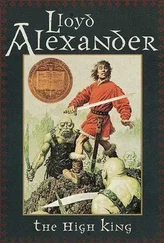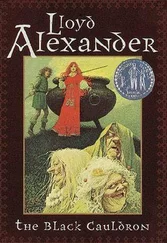After a half hour’s rest, I got up and continued on to my old neighborhood. I recalled the nights the bombs fell, the blazing heat, my attempted rescue of Frau Horst, finding my mother’s shoe in the street. I wouldn’t have recognized our block at all except for a wooden marker nailed to the corpse of a bomb-blasted tree.
I inched my way down the block, stunned by an overpowering sense of loss. It was as if my past had been obliterated by bombs. Even though the Allies had dropped them, I knew the true perpetrator of this destruction. He was now safe and warm in the Chancellery while the rest of Germany suffered.
I’d found what I thought to be the crumbling steps of my old home when I heard a small voice call my name. I turned to see a woman in a gray coat and black shoes. Her hair was stringy and long and fell out from under the white kerchief wrapped around the top of her head. She looked like an old peasant woman.
“Magda?” she asked with caution.
I did not recognize her at first. Then she smiled, rushed toward me and hugged me.
“Oh, Magda, you’re looking well,” she said. “Much better than the rest of us.”
I asked her name as cautiously as she did mine. “Irmigard?”
“Yes, don’t you recognize me?” Her smile turned to a frown and she looked down at her tattered coat and stockings. “No, of course you wouldn’t. You remember me as we were in school.”
“Don’t be silly,” I said, trying to soothe her feelings. “It’s just that I haven’t seen you in so long.” I put my bag on the ground and looked at her creased and ash-streaked face. I wanted to ask, “How are you doing?” I wanted to make polite conversation, but I sensed that neither of us was in the mood for such pleasantries.
“I’m gathering bricks,” Irmigard offered without my asking and then chuckled. “You have to laugh sometimes about how difficult life is. Who would have imagined that the daughter of a respected jeweler would be collecting bricks for sale? They’re in such short supply they’re like diamonds—more precious than the real gem. People need them to rebuild their homes.” She pointed to a creaky wheelbarrow on the other side of the street that held her prized possessions.
“Where are you living?” I asked.
Irmigard extended her thin arm in the direction of a row of buildings a few blocks away. “They’re damaged, but enough of the floors and ceilings remain that several families are living there. Our home was bombed to pieces. We are lucky to have a place at all. My father pays a little rent to the owner, who lives on the first floor with his wife. Sometimes they stay up all night guarding the building. My father has a gun.” She put a finger to her lips. “Please don’t tell. You know it’s illegal, but we have no other way of protecting ourselves. But if we get bombed again, we don’t have much to lose.”
A cold wind raced past us and Irmigard wiped her nose on her coat sleeve. “Where are you staying?” She looked at the ruins of my home in front of us. “I was sorry to hear about your mother.”
The thought of my mother’s death crippled me with pain. “I never found her body. My father was sick in the hospital and there was no time to search. I was working for the Führer.”
Irmigard squinted as the sun broke out from the clouds and shone on her face. “I heard you were working for him.” She spoke flatly as if she wanted to hear no more about Hitler. She looked at me inquisitively because I hadn’t answered her question.
I shook my head. “I don’t have a place to stay. I thought I could find my father. I wanted to be away from my job and everything associated—”
“You must come home with me.” Irmigard cupped her hands. “It will be like old times when we used to talk after school.”
“I shouldn’t. I must look for my father.”
“You can look for him, but you must stay with us if you have no place to live.” The look in her eyes told me she would be overjoyed to have my company. “You have no reason not to. The house isn’t pretty, but we’ve made it comfortable inside and we get a few vegetables now and then. If we’re lucky we even get a soup bone with a bit of meat on it.”
I looked at her unkempt face and saw something I had not seen in a long time. Pride. This school chum who had been part of my life so long ago was filled with pride and determination. She made me feel proud to be German. That was something I had not experienced since Karl had shown me the atrocities. My feeling was so different from the resplendent puffery of Eva and her friends and the obsequious pandering of the military men who surrounded Hitler. “All right,” I said, “but I’ll pay for my room and board and help you gather bricks if you help me look for my father. I’ve saved a few Reichsmark.”
Irmigard grasped my hands. “We will be the best of friends. Come, let me take you to my family. I’m sure they will be happy to see you.”
We crossed the street to get her wheelbarrow and the two of us, talking and laughing, pushed the heavy bricks down the cratered streets to her home.
* * *
Irmigard’s family welcomed me as if they were my parents. Her mother, Inga, met us on the steps of the derelict building. Irmigard led me up to the third floor, where she lived with her mother; her father, Frederick; and her younger sister, Helga. Her father, a man over fifty with graying hair, was repairing a watch as he sat in the sun in front of a broken window. He had cut the tips off a pair of cloth gloves so he could keep his hands warm, yet retain the agility of his fingers. Helga—fourteen years old and pretty, with long blond hair—was reading a book in a chair that had no legs. I’d met her a few times before when she was much younger.
All the windows on the front of the building were broken; a strong northwest wind poured into the room. Irmigard showed me the French doors they pulled shut at night to close off the space. The room, about seven meters wide, served as a dining room and bedroom. Scraps of wood and small branches littered the floor around a stove attached to the wall. A door at the back led to a small bathroom, which wasn’t working because there was no running water. Still, the apartment was better than living on the street, or in a hut, as was the condition of so many Berliners.
That evening, as the family gathered around a small oak table, Irmigard’s father said a prayer—not for Germany or Hitler, but for peace. We sat in dim candlelight because the electricity was out. Inga cooked over the woodstove using the meager kindling for heat. We dined from chipped bowls and cracked plates that had been washed with rainwater. The meal consisted of two scrawny carrots, divided among the five of us, and a weak soup made with a ham bone. I felt guilty taking this small amount of food from their mouths, and I vowed that I wouldn’t stay long under their roof. As scant as the meal was, I felt fortunate I didn’t have to worry about being poisoned.
“The Nazis will come for me soon,” Frederick said during dinner. “They will put a rifle in my hand and expect me to shoot the enemy. Soon there will be nothing but old men like me and the Hitler Youth defending the streets. The Führer is only prolonging our agony.”
Inga put her hands to her face and shook her head. “My God, surely they wouldn’t ask you to fight. You —who can barely walk up a flight of stairs! They will kill you!”
“Mamma, don’t say such things,” Irmigard said.
Her father lifted his spoon and tapped it against his temple. “I’ve been thinking. I doubt the war will carry on for much longer. But if it does, I’m not going to kill another man. I’ll surrender and that will be that.”
“How did this happen?” her mother asked. “The Führer brought us prosperity, order and respect and now the world is falling apart. We can’t go on like this for much longer or…” Her voice trailed off and she looked down at the watery soup in front of her. Her words were strangled by her sobs.
Читать дальше












